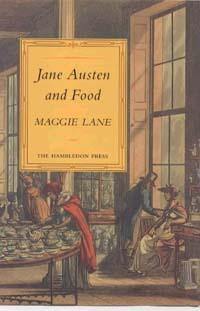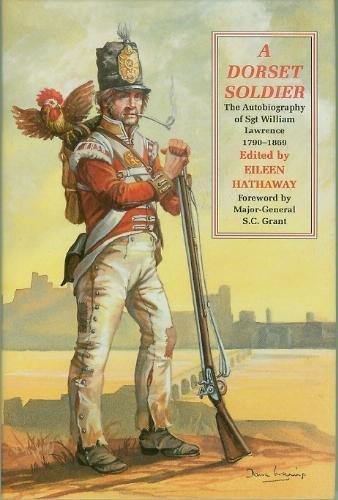This delightful book is the work of Bath’s Costume Museum Curator, Penelope Byrd. It takes an in-depth look at fashions of the period, care of clothes, and needlework, taking references from Jane Austen’s novels and her letters, and is supported throughout with beautiful illustrations. A must for anyone interested in period clothing, and a real treat, as it has been out of print for an absolute age!
Paperback: 128 pages
Publisher: Excellent Press
ISBN: 1900318121
Price: £12.95
 Jane Austen: In Style
by Susan Watkins, Hugh Palmer
Jane Austen: In Style
by Susan Watkins, Hugh Palmer
A perfect book for those who enjoyed Maggie Lane's
Jane Austen's World but want to know more. Jane Austen In Style offers an in depth look at Regency life, with chapters on homes, entertainment, fashion, food and more. While offering a wealth of Austen Family trivia and biography, Susan Watkins has also provided a map of daily life in the Regency.
Replete with full page, full color photographs and period prints, the book is visually stunning as well as being wonderfully informative. A well written, delightful read, it makes a good starting point for those wishing to get a feel for life in Regency England. Perfect for historical research or the casual novel reader.
It is complemented by a directory of where all manner of things Georgian can be seen or purchased today in both the UK and USA. A complete index is also included for easy reference. Available new and used from dealers such as
amazon.co.uk
Paperback: 224 pages
Publisher: Thames & Hudson; (October 1996)
ISBN: 0500279004
Price: £12.95
 English Women's Clothing in the 19th Century: A Comprehensive Guide With 1,117 Illustrations by C. Willett Cunnington
English Women's Clothing in the 19th Century: A Comprehensive Guide With 1,117 Illustrations by C. Willett Cunnington
The nineteenth century was a period of continuous change for women's clothing in England. The growing prosperity of the merchant class meant an ever-larger number of women for whom "dress" was a principle function of life, while the increasing availability of lower priced ready-made garments enabled women of moderate means to purchase the fashions of the day.
The magnificent array of ladies' fashions that characterized the century are on display in this remarkably complete decade by decade overview. Drawing almost exclusively from contemporary source-- fashion magazines, newspapers, rare period photographs, memoirs, Victorian novels, periodicals and other publications as well as firsthand observation of actual garments-- the author describes and explains the couture that evolved in response to the changing social conditions, technological innovations and cultural developments.
An excellent reference for those who wish to study the fashion of English women's clothing in the nineteenth-century, this sumptuously illustrated, commentary about clothing details including information about what influenced the design, materials used, the situation in which the garment would have been worn, and what type of person would have worn the garment. Granted, much of the material is more suited to Victorian studies, as this style was the most prelevant during the century, but Regency costume was in vogue from about 1800 to 1820. A wonderful reference for the costume designer or student of fashion, though the illustrations are . This is one of the most useful books for nineteenth-century fashion to be found. If there was a complaint to be made, it would have to be on the lack of color; illustrations are black and white or line drawings. A comprehensive index is included in the book.
Paperback: 460 pages
Publisher: Dover Pubns; Reprint edition (June 1990)
ISBN: 0486263231
Price: $29.95
Paperdolls- they're not just for children anymore! These historically based books, written and illustrated by renowed paper doll artist Tom Tierney provide a fascination and comprehensive look into British and French Fashion of the early 19th century.

The fashions of England's Regency Period originated in the early years of the nineteenth century, contemporary with Empire styles in France and the Federalist vogue in the United States (the actual Regency began in 1811 when the Prince of Wales began acting for his incapacitated father, George III). The clothing was characterized by the revival of classical styles, the elegant fabrics and fine tailoring favored by Beau Brummell and the popularity of such accessories as turbans and shawls. In
Fashions of the Regency we are introduced to George, a young lord who is a fastidious dresser, and his intended, Jane, both of whom display a variety of dazzling outfits for different occasions, from full court dress to riding habits and daywear. 30 costumes on 15 plates.

In 1804, when Napoleon Bonaparte was crowned Emporer of France, fashion took a dramatic turn away from the ordinary, nondescript clothing born out of the French Revolution. Elegant, extravagant fashion returned because Napoleon wanted to reinvigorate the economy, including the lace and fabric industries. He required military officers and high-ranking political figures to wear brightly colored and heavily embroidered silk coats on formal occasions, and he insisted that ladies NOT wear the same dress twice at court functions.
Empire Fashions features a chic couple modeling styles from 1800-1815 in 16 costumes on 8 plates.
Both books are wonderful research and play tools, and are a great when used to contrast English and French culture. Also useful for anyone who has a hard time visualizing what a Carrick coat or sleeves "edged with swansdown" actually look like.
Paperback
Publisher: Dover Pubns; (November 1996); Dover Pubns; (December 1999)
ISBN: 0486293351; 0486408132
Price: $5.95; $3.95  Jane Austen Fashion
by Penelope Byrde
Jane Austen Fashion
by Penelope Byrde Jane Austen: In Style
by Susan Watkins, Hugh Palmer
Jane Austen: In Style
by Susan Watkins, Hugh Palmer English Women's Clothing in the 19th Century: A Comprehensive Guide With 1,117 Illustrations by C. Willett Cunnington
English Women's Clothing in the 19th Century: A Comprehensive Guide With 1,117 Illustrations by C. Willett Cunnington
 The fashions of England's Regency Period originated in the early years of the nineteenth century, contemporary with Empire styles in France and the Federalist vogue in the United States (the actual Regency began in 1811 when the Prince of Wales began acting for his incapacitated father, George III). The clothing was characterized by the revival of classical styles, the elegant fabrics and fine tailoring favored by Beau Brummell and the popularity of such accessories as turbans and shawls. In Fashions of the Regency we are introduced to George, a young lord who is a fastidious dresser, and his intended, Jane, both of whom display a variety of dazzling outfits for different occasions, from full court dress to riding habits and daywear. 30 costumes on 15 plates.
The fashions of England's Regency Period originated in the early years of the nineteenth century, contemporary with Empire styles in France and the Federalist vogue in the United States (the actual Regency began in 1811 when the Prince of Wales began acting for his incapacitated father, George III). The clothing was characterized by the revival of classical styles, the elegant fabrics and fine tailoring favored by Beau Brummell and the popularity of such accessories as turbans and shawls. In Fashions of the Regency we are introduced to George, a young lord who is a fastidious dresser, and his intended, Jane, both of whom display a variety of dazzling outfits for different occasions, from full court dress to riding habits and daywear. 30 costumes on 15 plates.
 In 1804, when Napoleon Bonaparte was crowned Emporer of France, fashion took a dramatic turn away from the ordinary, nondescript clothing born out of the French Revolution. Elegant, extravagant fashion returned because Napoleon wanted to reinvigorate the economy, including the lace and fabric industries. He required military officers and high-ranking political figures to wear brightly colored and heavily embroidered silk coats on formal occasions, and he insisted that ladies NOT wear the same dress twice at court functions.Empire Fashions features a chic couple modeling styles from 1800-1815 in 16 costumes on 8 plates.
Both books are wonderful research and play tools, and are a great when used to contrast English and French culture. Also useful for anyone who has a hard time visualizing what a Carrick coat or sleeves "edged with swansdown" actually look like.
Paperback
Publisher: Dover Pubns; (November 1996); Dover Pubns; (December 1999)
ISBN: 0486293351; 0486408132
Price: $5.95; $3.95
In 1804, when Napoleon Bonaparte was crowned Emporer of France, fashion took a dramatic turn away from the ordinary, nondescript clothing born out of the French Revolution. Elegant, extravagant fashion returned because Napoleon wanted to reinvigorate the economy, including the lace and fabric industries. He required military officers and high-ranking political figures to wear brightly colored and heavily embroidered silk coats on formal occasions, and he insisted that ladies NOT wear the same dress twice at court functions.Empire Fashions features a chic couple modeling styles from 1800-1815 in 16 costumes on 8 plates.
Both books are wonderful research and play tools, and are a great when used to contrast English and French culture. Also useful for anyone who has a hard time visualizing what a Carrick coat or sleeves "edged with swansdown" actually look like.
Paperback
Publisher: Dover Pubns; (November 1996); Dover Pubns; (December 1999)
ISBN: 0486293351; 0486408132
Price: $5.95; $3.95 


2 comments
Amazing information, very much relatable.
https://bit.ly/3pOyyad
Alina Duvall
This is an amazing blog. I love to read this blog. Thanks for share with us.
https://www.topsandbottomsusa.com
Sophia Moller
Leave a comment
This site is protected by hCaptcha and the hCaptcha Privacy Policy and Terms of Service apply.